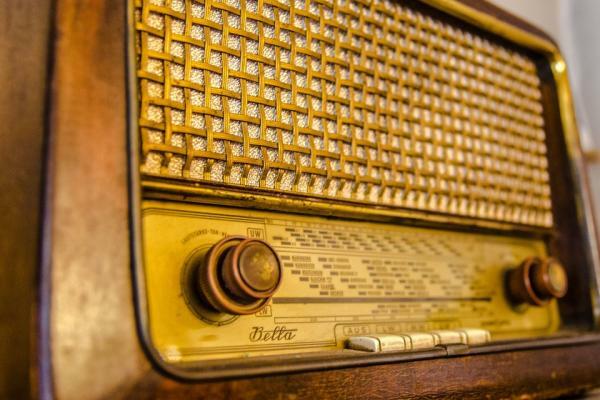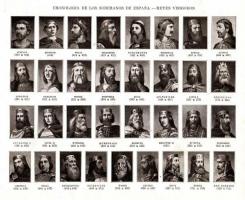Invention of radio

Radio is one of the most important inventions of the history of mankind. Thanks to his invention, people could be informed in real time of what was happening in the world. Currently, it is one of the most used means of communication in the world, and it can be found in different sizes and in different places on a day-to-day basis. Because of its importance, today in this lesson from a TEACHER we are going to offer a summary of the invention of radio to know the origins of this great invention.
Index
- Origins of radio
- The first radio broadcasts
- History of radio in Spain
Origins of radio.
We begin this summary of the invention of radio by talking about its origins. The bases of the theory on the propagation of electromagnetic waves, were described by James Clerk Maxwell in different works carried out between 1861 and 1865. Maxwell's theories claimed that the electric field and magnetic field they traveled through space in the form of waves that moved at the speed of light.
Twenty years later, Heinrich Rudolf Hertz proved that Maxwell's theories were correct. For it, Hertz created an emitter and a receiver of waves, Thanks to which he was able to calculate the speed of movement of the waves, being parameters very close to those of Maxwell's theories.
On 1894 some researchers were interested in the research carried out by Hertz. This year the first radio transmission of history. The author was Oliver Lodge, a British physicist who had studied the works of Maxwell and Hertz.
Shortly after, Guillermo Marconi created a commercial wireless telegraphy system which was based on the waves studied by Hertz. Because of this, many consider that Marconi was the inventor of the radio, but there is much controversy on this subject. The creation of Marconi was very successful, being especially important in the maritime sector and military, being common, a few years later, that some ships sailed with the wireless system of Marconi.
In this other lesson we discover you what have been the great inventions in history.

Image: Slideshare
The first radio broadcasts.
In the Christmas Eve 1906 the first major radio broadcast for the public took place. The author of this broadcast was the inventor Reginald Fessenden, who used a high-frequency electromechanical alternator to generate that great amplitude. Fessenden broadcast himself live on the radio playing a violin.
Even with this, retransmissions with such a wide range were still difficult to carry out. It did not take long to find a system that allowed the expansion of radio signals, the American Lee de Forest being responsible. De Forest invented the triode, which allowed amplify radio signals and generate them. The creation of the triode led to the proliferation of radio stations, being for decades the most used method in radios. The importance of the triode was such that it made transcontinental telephone service possible.
The triode was important until the 1950s, with the arrival of the transistor. In 1955 the first transistors appeared, small receivers that were powered by a battery. From this moment the radio transmitters began to be equipped by transistors, which was a real revolution.
From the 90s, with the arrival of new technologies, the world of radio changed a lot. It is possible for a person to broadcast a broadcast from his own personal computer.
History of radio in Spain.
To continue with this summary of the invention of radio we must talk about the importance that it has had this means of communication in the Hispanic country, being a fundamental piece in much of its story.
In 1904 the Spanish government decided to reserve the radio monopoly for the state, understanding the importance that this medium could have. Spain began an experimentation phase in 1906 and it was not until 1923 that he inaugurated the first radio station in the country, the so-called Iberian Radio. Little by little, new radios appeared, which came together in the so-called Union Radio.
During the Civil warthe radio had An important paper, each of the sides controlling a different radius. With the arrival of the Franco regime, the radios were divided into national, regional and local. In addition, the role of the institutional radio was very relevant, formed by the following radios:
- COPE
- Movement Station Network
- Blue Broadcasting Network
- Union Station Chain
In 1974 the Movement Station Network, the Blue Radio Broadcasting Network and the Union Radio Station Chain merged to form Spanish Radio Network.
With the arrival of democracy, the world of Spanish radios changed a lot, giving rise to the free and community radios. Radio Cadena Española joined with other companies, forming RTVE. The world of radio gained freedom, the creation of different radios being much easier and the monopoly that it had always had in Spain partially disappearing.
Here you will find the most important spanish inventions of history.

Image: Slideshare
If you want to read more articles similar to Invention of radio - Summary, we recommend that you enter our category of Story.



